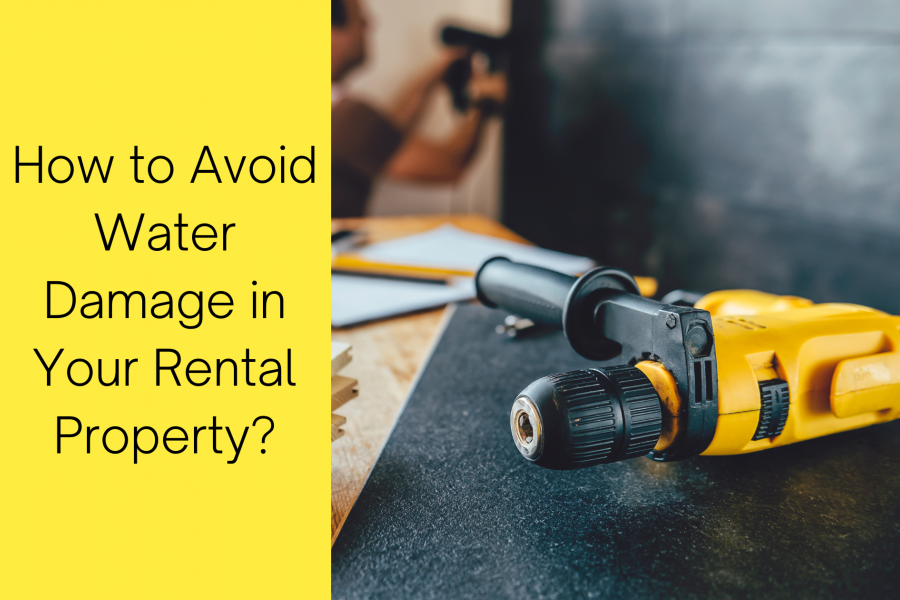
Have you ever faced costly repairs or frustrated residents due to water damage in your rental property?
As a landlord, water damage is one of the most common yet preventable challenges that can disrupt your property’s value and your peace of mind.
Whether it's a small leak that goes unnoticed or a burst pipe during the winter months, water issues can escalate quickly, leading to structural damage, mold growth, and dissatisfied residents.
By including clear maintenance responsibilities in your rental agreement and conducting regular inspections, you can address potential problems early.
The good news is that with proactive steps and routine upkeep, you can protect your investment and keep your property running smoothly.
Let’s dive into practical strategies to help you avoid water damage and ensure your rental remains a safe and appealing place for your residents Keep reading to learn more!
Best Practices to Avoid Water Damage in Your Rental Property
Conduct Regular Inspections
Regular property inspections are a cornerstone of water damage prevention. As a landlord, it’s essential to periodically check all areas of your property, including plumbing systems, roofs, basements, and attics.
Look for visible signs of damage like leaks, stains, or dampness. Don’t forget hidden problem spots like behind appliances or under sinks.
By identifying and addressing minor issues early, such as a small pipe drip or a clogged gutter, you can prevent them from escalating into costly repairs or major structural damage.

Create a seasonal inspection schedule and maintain proper documentation of your findings to ensure no problem goes unnoticed.
Maintain Gutters and Downspouts
Well-maintained downspouts and gutters are critical in directing water away from your property’s foundation.
Clogged gutters can cause water to overflow, pooling near the foundation and potentially seeping into basements or crawl spaces. To prevent this, clean gutters at least twice a year, especially after the fall season when leaves and debris accumulate.
Ensure downspouts extend far enough from the property to channel water away effectively. Installing gutter guards can also reduce debris buildup, saving you time and effort while protecting your property.
Check for Roof Leaks
A damaged roof is a common culprit for water damage. Conduct regular roof inspections, especially after storms or heavy winds, to check for missing shingles, cracks, or other signs of wear and tear.
Even small vulnerabilities can allow water to seep into the property, damaging ceilings, walls, and insulation.
Pay close attention to flashing around chimneys, vents, and skylights, as these areas are more prone to leaks. If your property’s roof is older, consider investing in a professional inspection or replacement to ensure long-term protection.
Seal Windows and Doors
Properly sealed windows and doors are essential in preventing water intrusion during heavy rain or storms.

Over time, gaps or cracks may form due to wear and tear or temperature fluctuations. Inspect the edges of windows and doors regularly, looking for signs of deterioration in the caulking or weather stripping.
Replace any worn materials with high-quality waterproof sealants to create a tight barrier against moisture. Pay particular attention to basement windows, as they are more prone to water seepage.
Well-sealed windows and doors not only prevent water damage but also improve energy efficiency, making your property more comfortable and cost-effective to maintain.
Monitor Plumbing for Leaks
Even small plumbing leaks can lead to significant water damage if left unchecked. Regularly inspect faucets, toilets, water heaters, and exposed pipes for signs of drips, rust, or corrosion.
Pay attention to water pressure changes or unusual noises, which can indicate hidden plumbing issues.
Address leaks immediately, as they can not only damage walls, floors, and ceilings but also increase water bills.
Consider installing leak detection devices in high-risk areas like under sinks or near water heaters to catch problems early. Routine plumbing maintenance is a worthwhile investment in protecting your property.
Insulate Pipes during Winter
Freezing temperatures pose a serious threat to unprotected pipes, which can burst and cause extensive water damage.

Insulating your property’s pipes, especially those in unheated areas like basements, garages, or crawl spaces, helps prevent freezing. Foam pipe insulation is affordable and easy to install, offering a simple solution to this common problem.
For added protection, let faucets drip slightly during extremely cold weather to keep water flowing. Educate residents about the importance of keeping the heat on, even in vacant units, to prevent pipes from freezing and bursting.
Educate Residents on Reporting Issues
Your residents play a crucial role in water damage prevention. Encourage them to report any leaks, drips, or water stains they notice immediately.
The sooner you’re aware of potential issues, the quicker you can address them. Provide residents with clear instructions on how to identify and report problems, including emergency contacts for urgent situations.
Regular landlord-renter communication about their role in maintaining the property not only prevents water damage but also fosters a sense of responsibility and cooperation. A simple checklist or reminder during lease signings can go a long way in promoting awareness.
Invest in Preventive Repairs
Minor issues, such as deteriorated caulking, cracked tiles, or loose plumbing fixtures, can quickly escalate if ignored.
Conducting preventive repairs ensures these small problems don’t lead to major water damage. For example, re-caulking around bathtubs or sinks can prevent water from seeping into walls and floors, while fixing cracked tiles helps maintain a watertight surface.
Stay proactive by addressing these minor concerns during routine maintenance checks, rather than waiting for them to turn into costly repairs. Preventive repairs not only save money in the long run but also enhance the overall value and appeal of your rental property.
Bottom Line
Water damage can be costly and stressful, but with proactive strategies and the right support, you can safeguard your property effectively.
At Mark Thomas Properties Property Management, we specialize in helping landlords maintain their investments through comprehensive property management services, including routine inspections, maintenance coordination, and resident communication.
Our expertise ensures your property stays protected year-round. Reach out today to discuss your options and find the solutions tailored to your property’s needs. Let us handle the details so you don’t have to!
